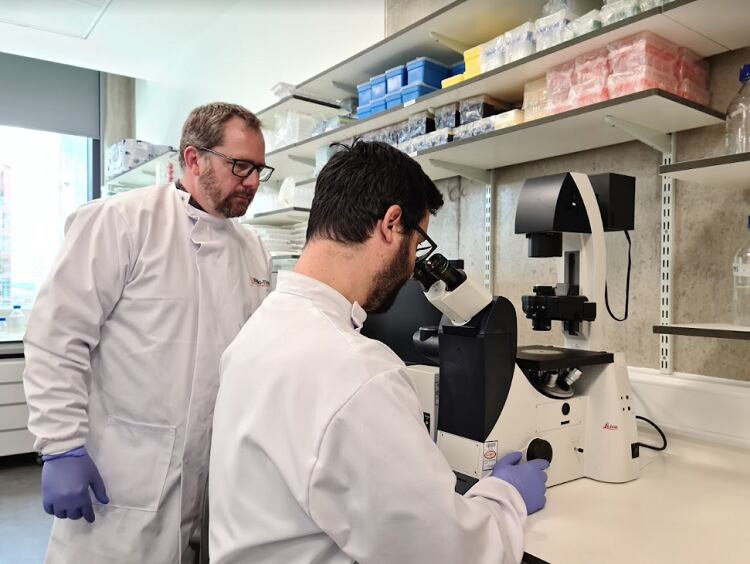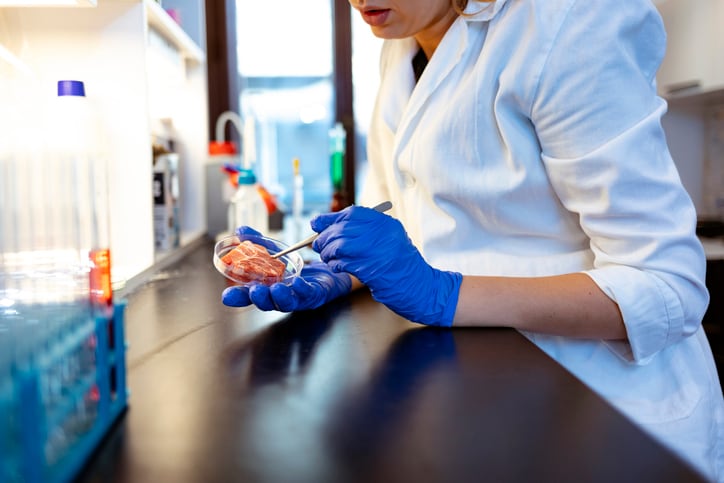As of this week, BSF Enterprise PLC is trading on the London Stock Exchange’s (LSE) Main Market. The company was listed at 8am on 17 May, following a placing which raised £1.75m at a placing price of 7.37p per share.
The news follows the reverse takeover of 3D Bio-Tissues (3DBT). BSF was previously a listed company, but de-listed last year in order to complete the reverse takeover and re-admit to the LSE with the 100% acquisition of 3DBT – a Newcastle University spin-out with plans to produce the UK’s first 100% lab-grown meat in the next 12 months.
Investing in 3DBT
3DBT is a tissue engineering company with three strains of IP, one of which is already being used to produce human corneas it claims could help restore vision to ‘millions of people’.
The tissue templating application uses a platform to grow different tissues with natural structure and function, such as corneas, lab-grown meat, and leather and human skin substitutes.
The other patent-protected IP relevant to the cell cultivated meat space is 3DBT’s serum-free media. Known as City-mix, the animal-free cell growth agent can be used for culturing skin, muscle and fat cells, which will be used for lab-grown meat and leather production.
The funds raised from floating will be used to expand 3DBT’s team and to market its serum-free media, as the business works to produce UK’s first 100% cell cultured meat product.
The race to be ‘first’
3DBT is not the only business working in cell cultivated meat in the UK. However, unlike other players (Ivy Farm, for example), 3DBT is a technology provider and not a lab-to-plate company.
As a result, 3DBT’s goal is to produce 100% meat. “Other companies are focusing on sausage and bacon, which includes additional ingredients,” explained 3DBT CEO Che Connon.
“Our focus is on high-end meat products, such as steak, that is 100% pure meat.”
And what makes 3DBT confident it will get there first? Connon told FoodNavigator it comes down to the successes of its existing IP. “[They] have been proven to work successfully. This has enabled us to start negotiations with manufacturers.”
The CEO continued: “We aim to produce our first cut of lab-grown meat within the next year. There are already wholesalers and manufacturers looking to work with us, so the idea that you will be cutting into a lab-grown steak for your evening meal in the next few years is definitely a reality.”
Lab-grown pork fillet
3DBT is currently looking to produce a pork fillet as its first cultivated meat offering. However, Connon stressed its technology can be applied to ‘any’ muscle, depending on market demand.
Amongst the barriers facing the cell cultivated meat industry, regulation stands out as a major concern. The first cell cultured meat ingredient received regulatory approval in Singapore at the back end of 2020. Neither the US, Europe, nor the UK have approved the commercialisation of meat grown in a lab.
In acting as a technology provider, rather than a lab-to-plate player, seeking regulatory approval will fall under the remit of its customers. The CEO said it was speaking to meat companies and wholesalers, who would ultimately be the ones applying for regulatory approval.




